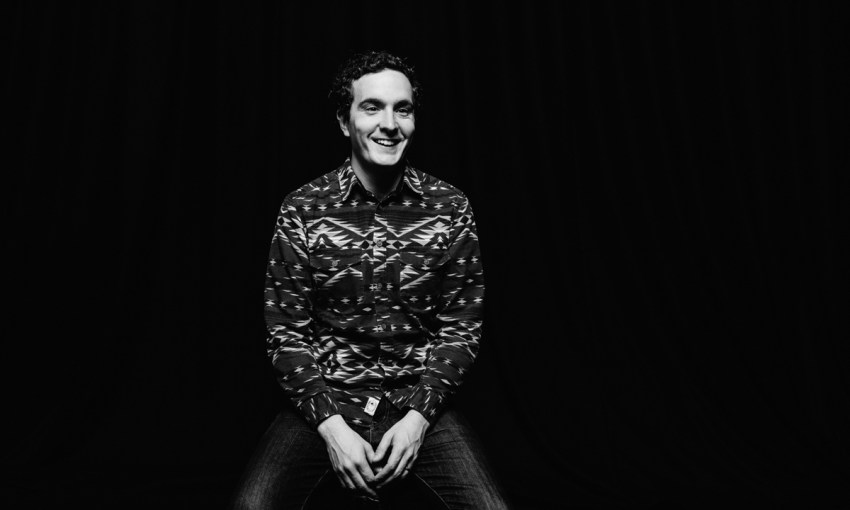After an intense three-month writing period, acclaimed jazz musician Ross McHenry is ready to debut his first symphonic work this weekend at Gigs at Grainger: Now Meets Now.
A symphony for Adelaide with Ross McHenry and the ASO
Ross McHenry is in an enviable position as an artist.
Since the release of his Trio’s most recent album, The Outsiders, in late 2017, Ross has toured the UK and Australia, undertaken a writing residency at the Banff Centre for Arts and Creativity in Canada, recorded the product of that residency in New York (as a quartet with Eric Harland, Ben Wendel and Matthew Sheens), and he rounded out 2018 by writing his first concerto: Concerto for Improvising Piano and Orchestra, which will be performed for the first time at the ASO’s Gigs at Grainger: Now Meets Now on Friday, 22 February.
Gigs at Grainger: Now Meets Now
Grainger Studio
91 Hindley Street, Adelaide 5000
8pm Friday, 22 November
Tickets
When CityMag catches up with Ross, in January, he is in no short supply of gratitude for the good fortune that has allowed him such a sustained period of fruitful creativity.
We speak in a rare moment of stillness – the artistic limbo between the formation of an idea and its release.
“It’s kind of interesting,” Ross says, “because, aside from the tours, the two projects that I’ve done, no one has heard.”
The concerto, commissioned by the ASO, is a dream project for Ross; he’s witnessed the Orchestra’s “vision in programming over the last couple of years by having a whole bunch of new work written by Adam Page and Julian Ferraretto and Mark Ferguson,” he says.
“Seeing those guys do it, obviously it made me also want to do it, and so it’s a huge privilege to be able to do it.”
Now Meets Now will open with Ross’ 30-minute work, which will be followed by a 30-minute new work from his Ross McHenry Trio bandmate, Matthew Sheens, and the night will close with orchestral arrangements of the Trio’s songs, arranged by Matthew and Adam Page.
Writing the concerto, which was commission by the ASO, was, at first daunting, but by the time Ross had made it into the second movement, he found confidence.
“Symphonic writing is the most momentous of all writing, so yes, there were many challenges,” Ross laughs.
“And specific to the ASO, the challenges that I faced, really being the first major symphonic work of this type that I’ve written, it’s the medium. It’s you can do anything and there are so many considerations – so many instrument-specific considerations, so many stylistic considerations, and so much detail.”
Although it is literally a meeting of the Adelaide Symphony Orchestra with a jazz trio, it was Ross’ ambition for the Trio’s arrangements to be a melding of the two worlds and reflection of Adelaide as a creative entity, rather than a jazz-meets-classical juxtaposition.
“There are very free sessions within very orchestrated settings,” Ross says.
“It’ll be interesting how the ultimate freedom combines with this kind of very well defined orchestral theme, and the way that those two things can hopefully work together.
“We’ve tried to make it more of something where our compositional mindset, which… inherently reflects the city and the culture that we live in, to try and reflect that through the medium of the Orchestra.”
A sense of place has long been an important part of Ross’ creative identity, and is crucial to any artist, he says.
“You’re either reacting with some kind of sense of belonging to a place or participating in a discourse that’s being created in that place, or reacting against it,” Ross says.
“If you can’t understand or find a way to do that, it leaves you in an artistic no man’s land, which can be very challenging as an artist.
“I’d spent a lot of time writing in that space before I came to understand more about where I was from.
“I don’t think it’s an overt thing where you’re like ‘Oh, that music’s so Adelaide,’ but for me it was very empowering to be able to find that centre-point where I wasn’t trying to be something that I wasn’t: [not] trying to write music that sounded like American music, or to be able to write symphonic music and not to feel like I wanted it to sound like specific schools of European symphonic music.
“I think a big part of that is an understanding about geographic identity specifically.”
Gigs at Grainger: Now Meets Now is happening at Grainger Studio on Friday, 22 November from 8pm. Tickets are available at the link.




